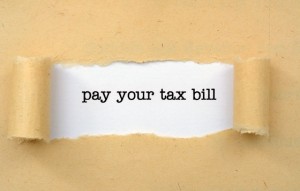What is Texas Franchise Tax?

Texas Franchise Tax
Business taxes are not only costly to growing businesses, but as with other taxes, have a tendency to be confusing. Take for instance Texas Franchise Tax.
The most common understanding of the word, “franchise,” is a business who buys the right to use the branding, systems, proprietary knowledge, processes, and the right to use trademarks of an existing business.
Enter Texas Franchise Tax, which is a Texas state tax that may have nothing to do with a franchise business as described above.
Regulated by the Texas Comptroller of Public Accounts, the Texas franchise tax generally applies to partnerships (general, limited and limited liability), corporations, LLCs, business trusts, professional associations, business associations, joint ventures, incorporated political committees and other legal entities.
If your business fits into one of these entities, you may have to pay between .575% and 1% tax, depending upon your total revenue, and the report filing and payment are due May 15th.
If your tax is paid late, your business will need to pay a $50 penalty plus a 5% penalty of the tax due. Add an additional 5% penalty, if you do not pay your tax within 30 days after the due date. If your tax is not filed until 60 or more days after the due date it will cost you an amount equal to the current year’s prime rate plus 1%. In certain situations, entities may even lose their right to transact business.
This puts a great light onto the need for every business to have a professional tax strategist CPA. Going online to set up a business entity by blindly filling out forms to become a corporation, LLC, etc., will cost that business much more than investing in a knowledgeable CPA who will also educate them as to their tax obligations.
